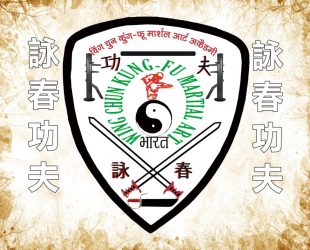Martial arts training is an incredible way for young people to build strength, discipline, and mental fortitude. However, like any intense physical activity, it’s essential to prioritize health and well-being to support optimal performance and prevent injury. Here are some key health tips for youth martial arts practitioners to help them stay strong, healthy, and energized throughout their training.
“Following 8 Point are Most Important Point”
-
Warm Up and Cool Down Properly
Before diving into sparring or intense drills, always start with a proper warm-up. A dynamic warm-up—such as jumping jacks, leg swings, and light jogging—prepares your muscles, joints, and heart for the physical demands of martial arts. After training, don’t skip the cool-down. Gentle stretches and slow movements help the body recover and maintain flexibility.
Why it’s important: Warming up and cooling down properly can reduce the risk of injury, increase flexibility, and aid muscle recovery, ensuring a stronger training experience.
-
Fuel Your Body with Balanced Nutrition
Martial arts practitioners need energy to perform at their best, which means fueling the body with the right nutrients. Eating a balanced diet that includes protein, healthy fats, carbohydrates, and plenty of fruits and vegetables is essential. Young athletes should focus on foods that promote muscle growth, enhance endurance, and support immune function.
Top foods for martial artists:
- Lean meats, fish, and plant-based proteins like beans and tofu for muscle repair
- Whole grains like brown rice, quinoa, and oats for sustained energy
- Healthy fats from nuts, seeds, and avocado for joint health and recovery
- Hydrating fruits and vegetables to maintain energy and prevent dehydration
Why it’s important: Proper nutrition keeps the body fueled, aids recovery, and enhances mental focus during training and competitions.
-
Stay Hydrated
Dehydration can quickly derail a training session. Martial arts training can be physically demanding, leading to heavy sweat loss. Ensuring that you drink enough water throughout the day is crucial for maintaining energy, focus, and endurance during class. While sports drinks can be beneficial for replenishing electrolytes after intense training, water should remain the primary choice.
Why it’s important: Staying hydrated helps regulate body temperature, supports muscle function, and keeps energy levels high.
-
Rest and Recovery
Martial arts training can be intense and often involves repetition. Giving the body time to rest and recover is just as important as the training itself. Sleep is particularly crucial for young athletes as it’s during sleep that muscles repair, energy is restored, and growth hormones are released.
Tips for better rest and recovery:
- Aim for at least 8 hours of sleep each night for optimal performance and recovery.
- Consider taking a day or two off each week to give the body time to recover.
- Active recovery, such as light stretching or yoga, can help keep the body mobile while allowing muscles to heal.
Why it’s important: Without sufficient rest, the body can become fatigued, increasing the risk of injury and hindering progress.
-
Practice Mindfulness and Mental Focus
Martial arts isn’t just about physical prowess—it also involves developing mental strength, focus, and discipline. Practicing mindfulness and mental techniques, such as deep breathing and visualization, can help youth martial artists stay calm under pressure, enhance concentration, and perform better during training and competitions.
Why it’s important: Mental clarity helps martial artists stay sharp, make better decisions during sparring, and overcome challenges both on and off the mat.
-
Listen to Your Body
As with any athletic pursuit, it’s important to listen to your body’s signals. If you’re feeling fatigued, experiencing pain, or noticing any signs of injury, don’t push through it. Rest, seek professional advice if needed, and take care of any injuries early to avoid long-term damage.
Why it’s important: Ignoring pain or pushing through injury can lead to more severe damage, ultimately interfering with training and performance.
-
Stretch Regularly to Improve Flexibility
Martial arts techniques often demand a wide range of motion, and flexibility is key to performing many moves, from high kicks to deep stances. Incorporating stretching into your routine can help improve flexibility and reduce the risk of muscle strains or joint injuries. Yoga can be particularly effective for increasing flexibility while also promoting balance and coordination.
Why it’s important: Flexibility supports better movement, less muscle tension, and an overall improved martial arts performance.
-
Stay Consistent and Build Slowly
While it’s tempting to push hard and fast in pursuit of improvement, remember that martial arts mastery takes time. Build your skills gradually, focusing on consistency over intensity. Avoid the trap of overtraining, and instead, focus on progressive growth, skill development, and regular practice.
Why it’s important: Building skill slowly ensures that you don’t rush past important foundational techniques and allows the body to adapt at a safe pace.
-Dr. Sonu Kumar Giri

